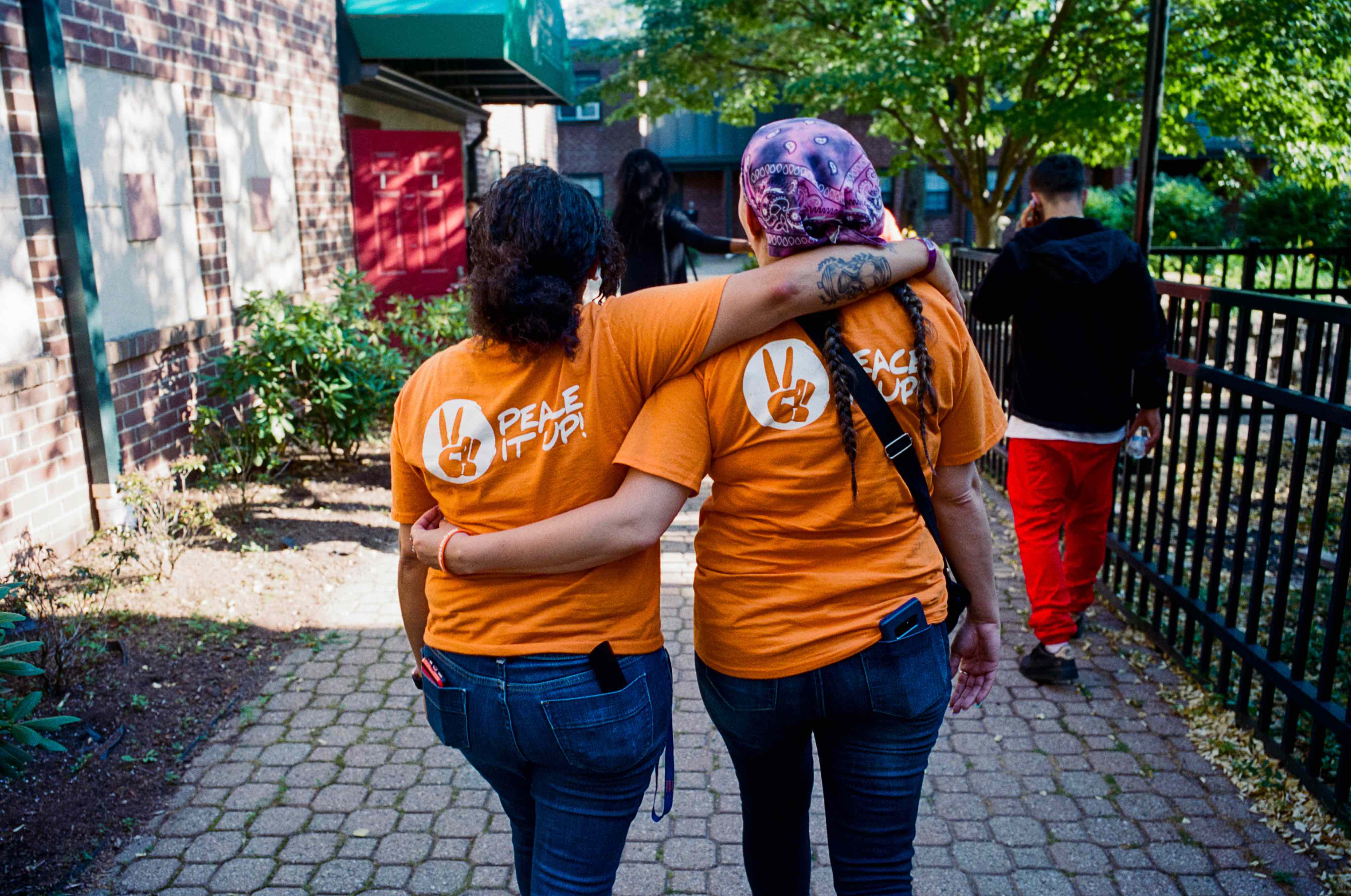The advent of social media has radically altered how people, especially young people, communicate. While the rise of cyberbullying is well recognized, the role social media plays in youth violence is not.
In a phenomenon known as “cyberbanging,” social media can intensify conflicts among youth in neighborhoods with high rates of violence, leading to offline violence, including physical fights and gun violence.
University of Connecticut School of Social Work assistant professor Caitlin Elsaesser has received a two-year $250,000 K01 award from the national Centers for Disease Control and Prevention (CDC) to research how social media conflict contributes to youth firearm violence and develop a social media-based intervention to address this pressing issue.
Elsaesser’s work is part of the first federal funding in 24 years to study firearm injury prevention. In 2019, U.S. lawmakers overturned an embargo on firearm research, and last week the CDC announced funding awarded to 16 researchers across the country. Elsaesser is one of two researchers in this cohort to receive a K01 award, early career development awards that provide intensive training and mentorship to develop the next generation of research leaders.
Data suggests cyberbanging plays an important role in youth violence, but experts are at a loss to understand the ways they might curb it. Traditional interventions like street outreach programs have not been designed to address conflict that starts online.
Separate studies suggest technology may be an avenue to address adolescent mental health. But no one has yet taken this work and applied it to the problem of cyberbanging.
Elsaesser will collaborate with her longstanding partner, COMPASS Youth Collaborative, on this study. COMPASS is a Hartford-based youth development agency that works with low-income youth and engages them in relationships to provide opportunities that help them succeed. COMPASS’ Peacebuilder program is a street outreach violence prevention program that connects Peacebuilders (violence outreach workers) with Hartford’s most disconnected youth, providing conflict mediation, crisis intervention, and counseling services. Elsaesser will work with COMPASS youth and staff to develop a social media-based intervention to reduce cyberbanging.
Few youth violence interventions have involved youth in the development of their programs. This project takes a community-based participatory approach, soliciting input through focus groups from both the COMPASS Peacebuilders and youth to develop a social media-based intervention that reflects their values and preferences. By considering the preferences and values of the community, the developed interventions will have a much better chance of succeeding.
“I am honored to be a part of this groundbreaking group of CDC grantees that recognizes the public health crisis of firearm violence in the U.S.,” Elsaesser says. “This award is an outgrowth of a four-year partnership with COMPASS Youth Collaborative and is a recognition of the importance of violence prevention researchers being guided by agencies and youth who truly understand their communities.”
This award will help Elsaesser launch her career as an independent researcher through training in mixed methods, intervention development, social media-based interventions, and leadership. She will receive mentorship from Kim Gans and Sherry Pagoto, both at the University of Connecticut, and Maury Nation at Vanderbilt University.
This award will lead to a grant application to develop and test a technology-enhanced street outreach intervention to reduce cyberbanging and youth violence.
Elsaesser holds a Ph.D. from the University of Chicago in the School of Social Service Administration. Her research interests include adolescent development and wellbeing, youth participatory action research and community participatory methods, community, school and family contexts of development, victimization, violence and perpetration and the role of technology in interpersonal violence.



